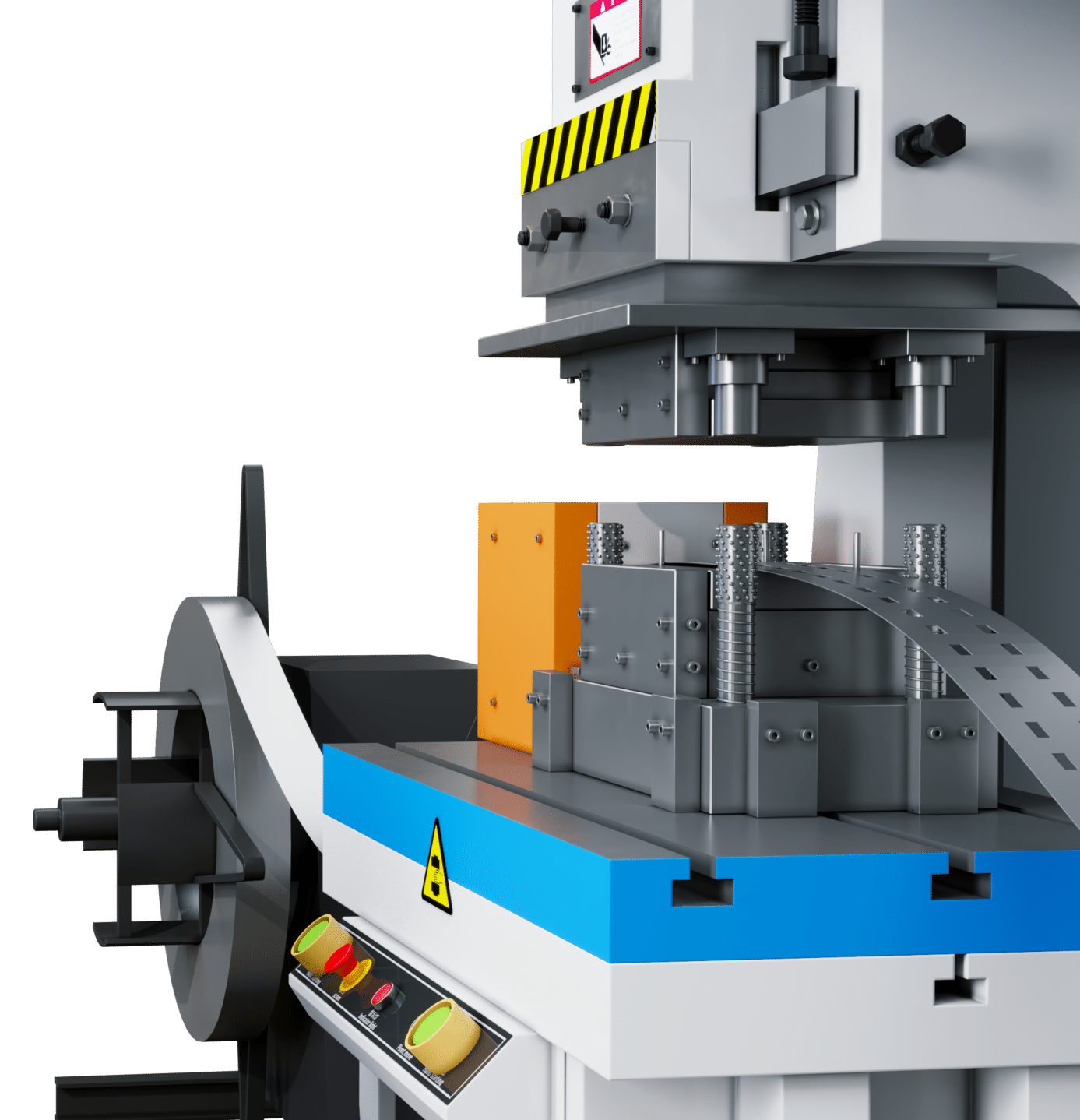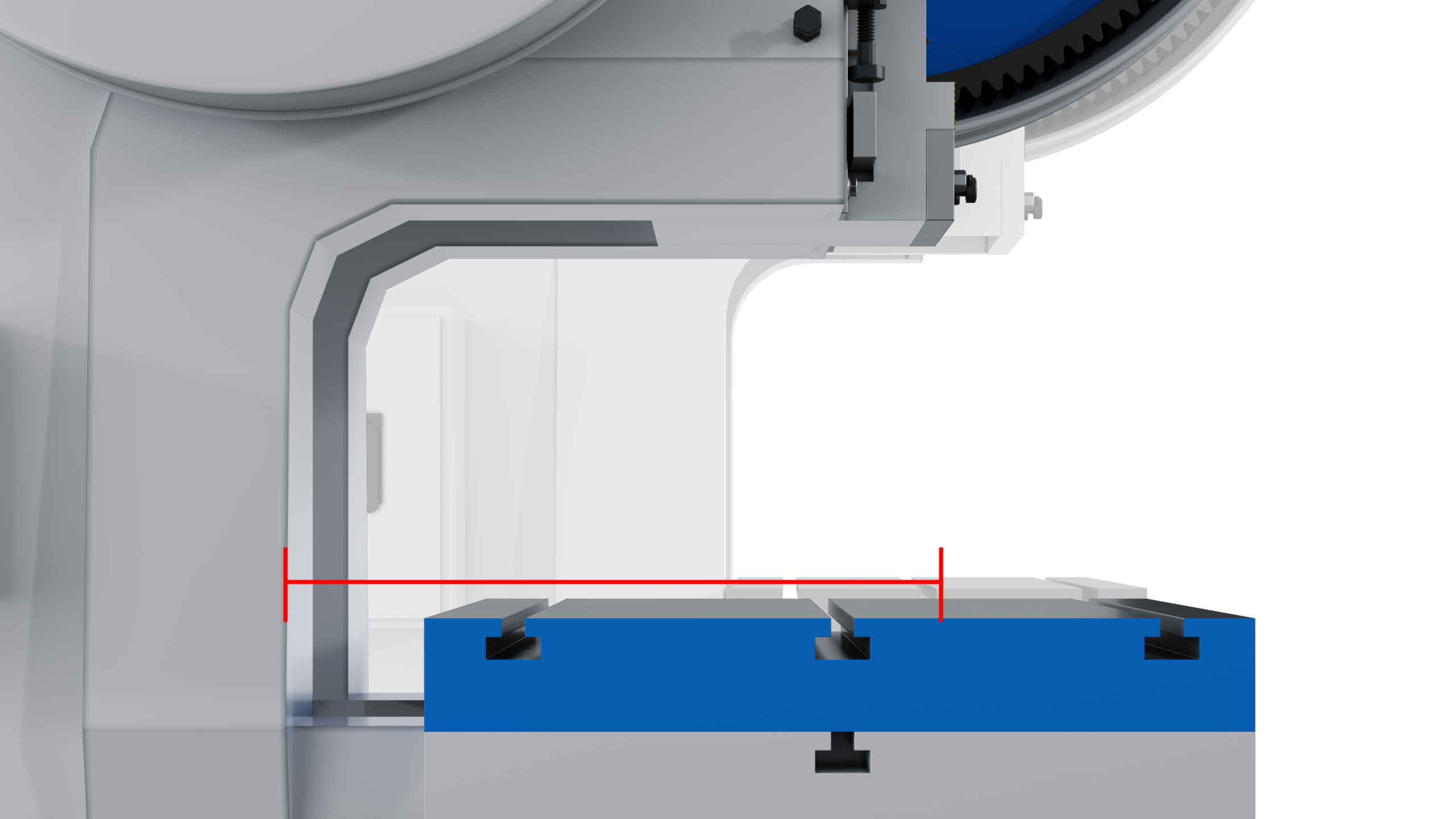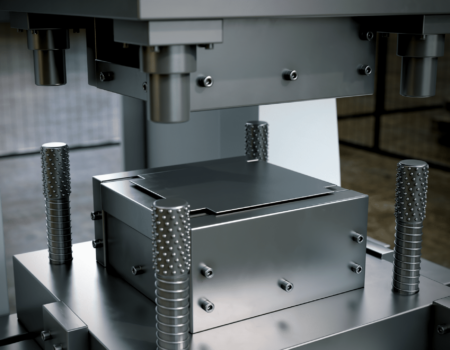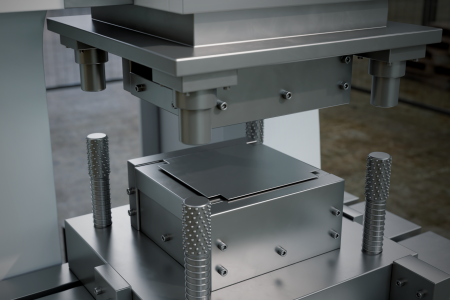Punching Machine
The punching machine is designed for high-speed, precise punching of holes in sheet metal. It uses a punch and die set to create various shapes and sizes of holes, making it ideal for a range of industries, from manufacturing to automotive.
Seamless Material Flow
The automatic feeding system ensures continuous material supply, reducing manual handling and increasing production efficiency. It streamlines the punching process for faster turnaround times.


Enhanced Reach
The deep throat opening allows for larger, more complex workpieces to be processed easily. This feature improves flexibility and capacity for various punching applications.
Punching Capacity
Complex Shapes
Efficient Power Control
The pneumatic clutch ensures smooth, precise operation with minimal wear and tear. It allows for reliable, quick engagement and disengagement, optimizing machine performance.
In material misalignment
In operator efficiency


Custom Precision
High-quality molds allow for the creation of intricate shapes with precision. Available in various designs, they provide versatility for different punching tasks, ensuring high-quality results.
Multi-Directional Flexibility
The rotational station enables the machine to rotate workpieces for multi-directional punching, increasing flexibility. It enhances production efficiency and supports a wider range of applications.

Why HARSLE
HARSLE delivers top-quality metalworking machines with decades of expertise. Enjoy direct factory pricing, a 3-year warranty, multilingual support, and localized service. Choose HARSLE for reliability, precision, and superior customer care.

Direct Manufacturer

3-Year Warranty

Multilingual Team

Precision Frame

Quality Control

Local Support
General FAQs
When selecting a punching machine, consider factors like material thickness, punching force, speed, and the types of dies and tooling required. Also, evaluate the machine's precision, ease of use, and available automation options to meet your production needs.
Punching machines can process a variety of materials, including sheet metal, aluminum, steel, brass, and copper. The specific material thickness and hardness will depend on the machine’s capacity.
Always ensure that safety guards are in place, and follow the operator manual for machine startup, adjustments, and shutdown procedures. Regularly inspect the machine for wear and tear, and make sure to use appropriate personal protective equipment (PPE).
Regular maintenance includes lubricating moving parts, checking hydraulic fluid levels, and inspecting the dies for wear. Follow the manufacturer’s recommended service schedule to ensure optimal performance and longevity.
Hydraulic punching machines offer more flexibility and power for thicker materials, while mechanical punching machines are typically faster and more cost-effective for lighter, thinner materials. Choose based on your production requirements and material types.
To improve punching accuracy, ensure the machine is properly calibrated, use the right tooling for the material, and maintain the machine regularly. Additionally, using automated backgauges can enhance positioning accuracy for repeatable results.
CNC punching machines offer higher precision, flexibility, and automation compared to manual models. They allow for quicker setup, faster production, and the ability to process complex designs with greater accuracy.
HARSLE punching machines are known for their high precision, robust design, and advanced technology. With customizable features, excellent after-sales service, and compliance with international standards, HARSLE machines deliver reliability and performance at competitive prices.
Yes, punching machines are ideal for high-volume production. Automated features like programmable controls, fast cycling times, and the ability to process multiple holes in a single pass make them efficient for mass production.
To choose the right punching machine, assess your production volume, material types, required hole sizes, and budget. Consider machines with flexible tooling options and automation capabilities to meet your specific needs. HARSLE offers a range of models to suit various applications and budgets.





















